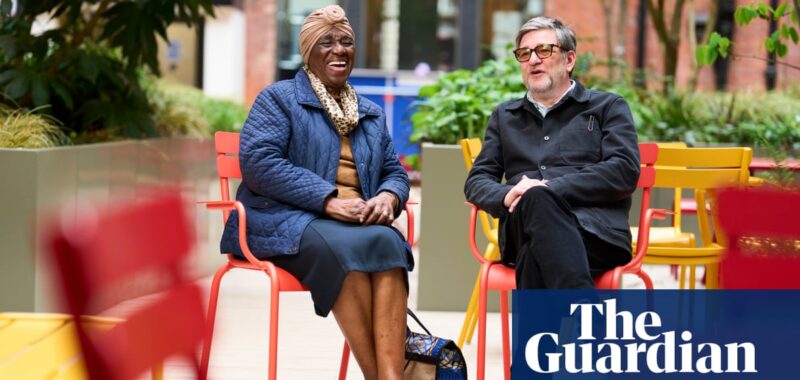Futuristic planning for spaces where people can age well and live in an area designed for them to grow old in is accelerating in the UK with a radical project backed by £1.5bn of funding.
The plan to transform a hospital into the first neighbourhood in the country designed for people to thrive as they age will be a national testbed for holistic health and social care approaches. It will include hi-tech homes that adapt to occupants’ life stage and care needs, transport, a village green and a social calendar to combat isolation.
The master plan for the North Manchester general hospital (NMGH) redevelopment in the Crumpsall district is the result of collaboration by public health officials, local politicians, experts and architects.
Michelle Humphreys, the director of strategic projects for Manchester University NHS foundation trust (MFT), described it as a neighbourhood that “adapts around people as they go through life”, powered by advances in medical wearables and remote monitoring.
The government has formally approved up to £1.5bn funding for NMGH under the new hospitals programme, clearing the way for an outline business case for the neighbourhood. The first phase of land is expected to become available this year.
Bev Craig, the leader of Manchester city council, said transforming the city into a place where people thrive as they age was a fundamental focus of regeneration.
NMGH’s “healthy neighbourhood” scheme is multigenerational. It will include family housing and will be built in line with age-friendly concepts, spearheaded by the World Health Organization (WHO) in response to two major trends – the ageing population and urbanisation.
By 2050 60% of the global population will live in urban environments and 27% of people will be over the age of 65, the OECD predicts, yet experts say cities are often defined by spatial ageism where environments are not set up for older people.
The age-friendly movement aims to ensure older people can still play a part in civic life. The Elders Council of Newcastle, Northern Ireland’s older people’s commissioner and Wales’ commitment to becoming an age-friendly nation reflect how UK regions and devolved governments have been preparing for demographic change.
The humble bench – improved with armrests, numbered to aid in a medical emergency, or placed strategically for wellbeing and intergenerational conversation – can be transformative, with dozens installed in Manchester, taking inspiration from New York’s CityBench initiative.
However, the UK has further to go. Akita, in northern Japan’s Tohoku region, where 30% of the population is over 65, has more than 60 heated roads to prevent slips on ice. In Singapore, where one in four are predicted to be over 65 by 2030, the Admiralty “vertical village” has a central medical tier, so older residents, who live in slip-proof homes with alarms alerting neighbours in an emergency, can have surgery without leaving. In Germany in 2007, BMW made 70 changes to its Dingolfing factory to adapt to an older workforce.
In Manchester the NMGH redevelopment is expected to transform the 1870s site into an “anchor institution” providing training and improving life expectancy with two new hospitals, 200 homes and health-tech businesses. There are also plans to integrate existing residential streets into the healthy neighbourhood, where work is scheduled to begin in 2027.
Prof Stefan White, from Manchester Metropolitan University and Manchester School of Architecture, said the NMGH project would exemplify how to free up hospital space and allow people to “age in place” with the type of support ordinarily provided in a care home made available to the whole neighbourhood on a flexible basis.
Elaine Unegbu, the chair of the Age Friendly Manchester older people’s board, has successfully lobbied the Greater Manchester mayor’s team for transport adaptations, benches and afternoon matinees. She said the healthy neighbourhood would give residents peace of mind at a time when gentrification “whitewashed” older urbanites, with many forced from their homes by health crises to the detriment of communities.
Manchester, where previous age friendly projects include the Derek Jarman Pocket Park inspired by LGBTQ+ over-50s, has been pioneering the movement in the UK since 2008. Last month the city hosted international experts at the Age-Friendly Futures Summit.
Paul McGarry, the head of the Greater Manchester ageing hub, said: “The task is to get a national conversation on ageing. How we plan for pensions and care services, what kind of houses do we need, what kind of communities do we want to live in? How do we tackle ageism? It’s the last taboo, the last acceptable ‘ism’.”

